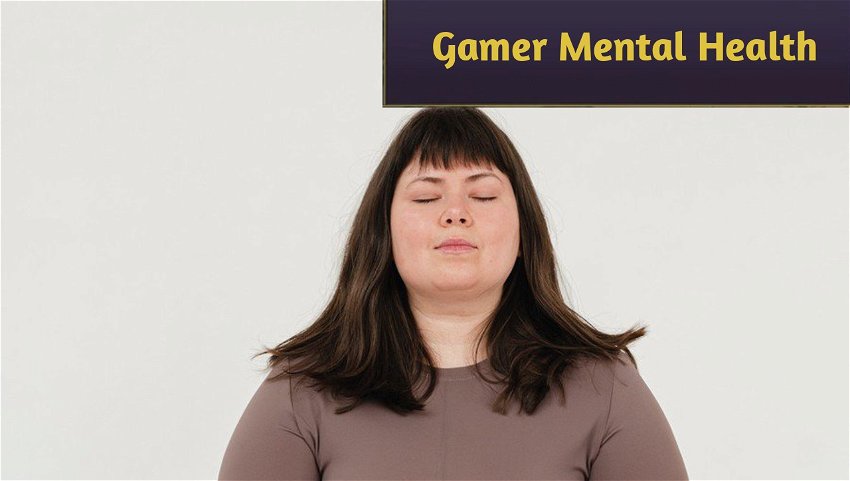Over the past few years, the impact of gaming on mental health has been rapidly increasing. This article seeks to explore the positive effects of gaming on one's mental health in terms of supporting emotional regulation, fostering creativity and resilience, improving cognitive ability, and more.
Through a synthesis of research findings, this paper will discuss what current studies have found concerning the psychological benefits associated with gaming and why they matter. The evidence suggests that engaging in gaming can lead to improved emotional wellbeing, increased focus and concentration, enhanced problem-solving skills, and increased confidence in social situations.
With numerous potential applications and implications, it is clear that gaming can serve an important purpose in our lives, encouraging us to embrace its potential for productivity and respite.
Cognitive Benefits
It is a well-known fact that playing video games can have a positive impact on mental health, but how? Recent studies have revealed that gaming can be like a brain workout for young adults - it can improve cognitive abilities and sharpen the mind. Despite this, violent video games are often seen in a negative light. However, recent research has shown that even moderate gaming can help to develop critical thinking skills and make better decisions.
The effects of gaming on young people and gamers’ behavior has been studied extensively with impressive results. A study reported an alarming observation: those who played violent video games for two weeks had reduced activity in important brain areas when trying to control their behavior; whereas adolescents who didn't play any kind of video game showed no such reduction. Another study found that just 30 minutes of playing violent video games caused a decrease in activity in the prefrontal cortex; however, non-violent gamers experienced no decline.
Playing video games doesn't just provide entertainment - it also offers many benefits for mental health! Moderate gaming improves multitasking abilities, encourages creative thinking and increases motivation. It's been discovered that playing games boosts efficiency in attention-related brain regions too! In addition to being enjoyable, regular gaming helps build complex problem-solving skills, enhances memory and intelligence levels as well as self-esteem while reducing stress levels and improving social interaction and moods overall!
Make sure to visit Energy Casino, where you can find a range of exciting casino games including plenty on twenty.
Improved Memory
A study conducted by the Universitat Oberta de Catalunya found that more hours playing video games as a child is related to improvements in memory - but what does this mean for us? US children who spent more time playing video games had an average increase of 2.5 IQ points, which is like giving your brain a turbo boost! This increase in IQ points can be incredibly beneficial, allowing individuals to think critically and make better decisions, remember things easily, and focus on tasks with ease. So if you're looking for an edge in life, maybe it's time to dust off those old controllers!
Enhanced Problem-Solving Skills
A 2013 study at the University of Glasgow was like a lightbulb illuminating the relationship between strategic video games, problem solving skills and academic grades. What did it find? Remarkably, adolescents who played strategic video games showed improved problem-solving skills and higher academic grades in the following year. This could be attributed to the fact that playing these types of online games often requires players to use their problem-solving skills in order to succeed.
Jigsaw puzzles are another activity that can help sharpen your problem-solving skills and visual-spatial reasoning - not to mention provide stress relief! Sudoku is also great for improving memory and concentration; this logic-based number puzzle will have you feeling sharp as a tack!
Increased Intelligence
A 2013 study at the University of Padua uncovered a surprising truth - playing video games can actually make you smarter! The study found that gamers who played action video games had higher levels of intelligence compared to those who didn't. This is likely because these types of games require quick thinking and problem-solving skills in order to succeed.
Not only do they increase your IQ, but playing video games can also help improve memory, problem-solving abilities, and overall intelligence. So if you're looking for a mental boost or want to give other aspects of your brain an extra workout, why not try out some new video games? Who knows - it might just be the key to unlocking your inner genius!
Emotional Benefits
The concept of self-esteem is like a mirror, reflecting how an individual perceives, appreciates and values themselves. Video gaming can be the perfect tool to help improve this reflection in many ways. As players progress through games, they are rewarded with a sense of accomplishment or mastery - leading to increased confidence and self-worth. Gaming also provides positive reinforcement as points, trophies or badges are awarded for completing objectives. It gives gamers the opportunity to take on challenges and develop problem-solving skills; building their self-efficacy and determination along the way.
When it comes to stress levels, playing video games can act as a coping mechanism by providing an escape from reality's demands - allowing gamers to relax and take a break from the pressures of life. It also offers control over situations that may otherwise seem out of reach, giving them something else to focus their attention on instead of anxieties.
However, too much time spent gaming can lead to neglecting real-life relationships, which could result in depression or other mental health issues due to feelings of isolation and loneliness caused by lack of social interaction. Additionally, excessive gaming could mean missing out on essential tasks, which could have serious consequences down the line.
Despite these potential risks though, there is still benefit in feeling accomplished when playing video games - especially those requiring strategic problem solving skills which increase intelligence! This satisfaction gained from success within game play can give players a boost in motivation and confidence; making it beneficial for mental health overall!
Improved Self-Esteem
Although gaming can be fun, it's important to know the risks of addiction. Have you ever thought about how gaming can affect your mental health? Here are some tips: Set limits on game time and take regular breaks. Get out there and exercise or hang with friends. And if all else fails, don't forget to seek help!
Reduced Stress
There is a dark side to gaming - but how deep does it go? Studies have shown that people with an internet gaming disorder are more prone to aggressive behavior, depression and anxiety - like a heavy fog clouding their day-to-day life. Gaming can be used as a coping mechanism for depression, but this can backfire, numbing negative emotions instead of dealing with them.
The effects of gaming on stress management is a hot topic in the debate arena. Some say it's a stress reliever while others disagree. It could provide an escape from reality, or lead to neglecting other responsibilities and activities - depending on who you ask.
So what's the answer? How do we find balance between gaming and other activities such as physical exercise or socializing with friends?
Improved Social Interaction
Video games can be a virtual playground, offering players the chance to progress and level up their skills, stay social, get creative, and become immersed in an alternate world. Too much gaming can lead to losing contact with real-life friends and increased social anxiety as gamers forget to engage in relationships outside of the game.
Dr. Gino Mortillaro believes that gaming can help build interpersonal relationships if parents and families take interest in their loved one's enthusiasm for video games. This encourages them to explore activities that involve more socialization than just playing video games alone. Moreover, gaming can also provide support for friends when they need it most - like a personified companion providing an opportunity for virtual social interaction, cooperation and a low-stakes environment where new people can be tested out without fear of judgment or failure.
Psychological Benefits
Video games have become a pervasive part of modern life, and it's easy to get hooked. The World Health Organization has classified video game addiction as a mental health disorder that can lead to depression, anxiety, and social isolation. It's important to be aware of the potential risks gaming poses for our mental wellbeing.
Toxic gaming communities can have an especially damaging effect on our mental health - according to the American Psychological Association, gamers who spend too much time in these environments are more likely to struggle with relationships in their own lives. Excessive gaming can also cause addiction, loneliness, and increased aggression.
But playing video games doesn't always have negative consequences - when done in moderation it can actually help us relax and feel fulfilled. Video games provide motivation and a safe space for failure; they stimulate the mind by improving problem-solving skills and boosting creativity (research from Iowa State University found that playing Minecraft without instruction had greater positive effects on creativity than watching TV or playing race car video games). Plus, wordle provides small doses of dopamine by releasing one puzzle per day! For many people, gaming is fun and rewarding - providing an outlet for negative emotions like stress or anger.
It's worth noting though that spending more than four hours a day playing video games may result in skill deficits such as poor emotional regulation. If you think you might suffer from depression or an addiction to video games, then don't hesitate to seek professional help. Mental health professionals will be able to provide tools for managing your mental wellbeing while addressing any underlying issues causing excessive gaming behavior.
Enhanced Creativity
Playing video games can be a powerful tool to cultivate creativity. They offer an arena for players to craft something from nothing and test out different ideas. Video games also promote creative problem-solving, allowing gamers to find new ways of tackling game challenges.
Creative thinking is essential in the development of strategic video games, and many gamers discover that playing video games helps them think outside the box. Plus, online gaming encourages collaboration and cooperation - teaching players how to think critically and develop innovative solutions for real-world problems.
A study found that playing Minecraft without instruction improved creativity more than watching TV or playing a race car video game - showing the potential stimulating activities to inspire imagination. The game further motivates players to build and explore, which stimulates their minds and sparks creativity.
Improved Attention Span
Playing video games - a pastime for many - can it really help us? Research suggests that certain types of video games can be like a magic potion, helping to improve attention span and focus. One study even found that playing action video games for just one hour a day could significantly boost concentration and the ability to stay focused.
These findings suggest that gaming isn't all bad; in fact, it may have some positive effects on mental health. But is there such a thing as too much gaming? Absolutely! Too much time spent playing video games can lead to addiction and other negative impacts on mental health, not to mention decreased physical activity and poor eating habits.
Improved Mood
Playing video games - is it a blessing or a curse? Research has found that, when used in moderation, video games can be like a breath of fresh air for mental health. They can reduce stress and anxiety, boost happiness levels to the sky, give you an extra dose of self-esteem and even help you make friends! But what about the risks? Is there such a thing as too much gaming? Absolutely! Excessive gaming can lead to addiction and have serious consequences on your mental wellbeing. If this sounds familiar, don't worry - professional help is available.
Mental health professionals are here to provide tools to manage your mental health and well-being while addressing any underlying issues that may have caused excessive gaming in the first place. So how do we strike a balance between playing video games and other healthy activities? It's all about finding harmony between physical activity, social interaction and interpersonal relationships - just like with anything else in life! In conclusion, playing video games can be beneficial for our mental health if done right – so why not take advantage of its positive effects today?
Summary
Overall, the research presented shows that playing video games in moderation can be used to enhance mental health. For example, it can improve cognitive abilities such as multitasking, memory, problem solving and creativity. It can also provide emotional benefits by increasing self-esteem and reducing stress levels. Moreover, video games have been found to have a positive impact on social interaction and mood, and can even foster creativity.
While gaming has mainly positive effects for mental health, it is important to remember that there are some potential negatives associated with excessive play. This includes neglecting real life relationships, addiction, withdrawal symptoms and negatively affecting academic performance. To ensure these risks are avoided, it is important to find a healthy balance between gaming and other activities, and to limit gaming time as much as possible.
Ultimately, although video games should not replace real-life relationships or physical activities, they can still provide great psychological and cognitive benefits. Through engaging in moderate, healthy gaming habits and engaging in other activities, one can enjoy the potential advantages that video gaming provides while avoiding the potential negative consequences.
Frequently Asked Questions
What positive effects do video games have on mental health?
When played in moderation, video games can have positive effects on mental health by providing a sense of accomplishment, social connection and enhanced cognitive skills. Regularly engaging in moderate gaming activities can also reduce stress levels, improve mood and provide a source of relaxation.
Playing video games in moderation has been linked to improved mood, reduced emotional disturbance, better emotion regulation, relaxation, and stress reduction. Video games can act as distractions from pain and psychological trauma, offering relief for those dealing with mental health issues such as anxiety, depression, ADHD, and PTSD.
Taking part in regular moderate gaming activities can also be beneficial to mental health by providing feelings of accomplishment, social connections, and enhanced cognitive skills.
Are video games good mental activity?
Overall, video games can be a great mental activity and offer numerous benefits such as improved memory, problem-solving skills, increased concentration and hand-eye coordination. They also provide a sense of satisfaction and community through online interaction.
Therefore, it is safe to say that video games can be beneficial for mental health.
How does gaming impact mental health?
Gaming can have a significant impact on mental health, both positively and negatively. Positive effects include improved self-esteem and social skills, while negative effects include increased loneliness and aggression. It is important to maintain balance in a person’s life to ensure that gaming remains a healthy source of entertainment.
It is essential to take steps to recognize and address any concerning changes in behavior related to one's gaming habits in order to maintain a healthy lifestyle. Dec 24, 2021.
Is excessive gaming a mental illness?
Based on the evidence presented, it is clear that excessive gaming can manifest as a mental illness. Gaming addiction is included in the American Psychiatric Association’s Diagnostic and Statistical Manual of Mental Disorders, and it has been associated with various negative psychological effects like depression, anxiety, aggression, and insomnia.
Can video games cause anxiety and depression?
Studies have suggested that an excessive use of video games may be linked to mental health issues, including anxiety and depression. Although further research is needed to determine a clear cause-and-effect relationship, investing in mental health awareness and advocacy is a positive step towards reducing the effects of mental health conditions due to gaming.











— Comments 0
, Reactions 1
Be the first to comment